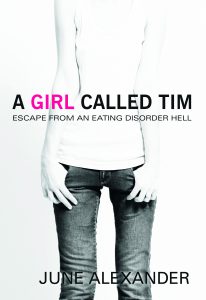Tag: diary writing as therapy
Binge-writing: The role of narrative in my eating disorder recovery
‘Your life is your story. Make it amazing.’ by Ari Snaevarsson Whenever I think of the tools that were instrumental to my recovery, a few always come to mind: accountability through a support system, exercise that emphasized strength and not punishment, and meditation. But there was one tool that consistently...
Using journaling to recognize self-harming behaviors and reclaim your own voice
by June Alexander Knowledge is power in healing from an eating disorder. But when you do not understand that you are sick, the illness may thrive, isolating instead of connecting you with helpful others. At some innate level, you may know your real ‘healthy-self’ is ‘there’, or you may think...
Factors to consider when you feel ready to write your story
by June Alexander The writing of a life story or memoir requires preparation and planning, and benefits will come in the process as well as delivery. Choosing the time to write is the first of many factors, for your impression today may differ tomorrow. This post is especially for people...
“I’m sorry you’re going through that, but you know you’re not alone?”
Regaining healthy relationships from an eating disorder by June Alexander An eating disorder is about more than our relationship with food. When food increasingly dominates our thinking, our relationship with self and with others can disconnect and disintegrate at an alarming rate. Confidence and belonging give way to shame, stigma,...
“Aunt June, you are the problem in our family:” Using the journal to dispel stigma, inside and out
by June Alexander Engaging in the world beyond an eating disorder (ED) means facing up to things like stigma. The perception or inference by others that ED, or any other mental health challenge, is a personal weakness can be demoralizing and destructive. In this post, drawn from my book, The...
Securing trust when writing a non-fiction story – feeling safe enough to share innermost thoughts and feelings
By June Alexander Securing of trust is essential when recovering from an eating disorder, and likewise it is essential when we are writing stories about the illness. Today I will describe the ways in which trust was integral to the writing of my book Using Writing as a Therapy for...
Why write a diary?
by June Alexander “I wish I had written a diary in my youth.” “I wish Mom or Dad (or Grandpa or Grandma had kept a diary.” I often hear these sentiments. Pictures can tell us a lot, but words add the flesh and bring those pictures to life. If you...
Can journaling help you heal from your eating disorder?
by June Alexander On December 11, when I receive my PhD (Philosophy) at a graduation ceremony, I will walk proudly. Above all, I want my award to signify hope for everyone who has lived with a long-term eating disorder. Hope for everyone, at every age. We can live a full...
Listening to the patient’s narrative can turn “hopeless” into “hope”
by June Alexander Eating disorders, particularly Severe and Enduring Anorexia Nervosa, can sound like a life sentence. Too often, it is. The Diary Healer (Alexander, 2016) illustrates it is time to listen to the patient and replace “hopeless” attitudes with “hope.” A recovery model of patient-centered care offers hope, respect,...
My friend the diary (part 3): Using your diary as a “get to know me” power tool
Using a diary as an agent for recovery and change by June Alexander When I began recovery from a long-term eating disorder, my diary became an agent for change – supporting “me” rather than my illness. For example, it became a place to explore and reflect on painful experiences from...







Recent Comments